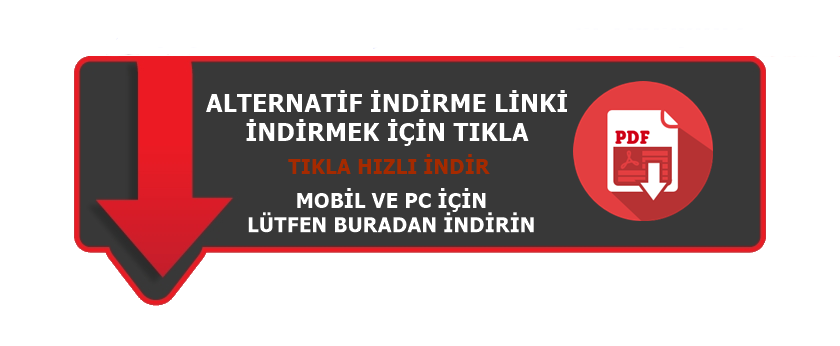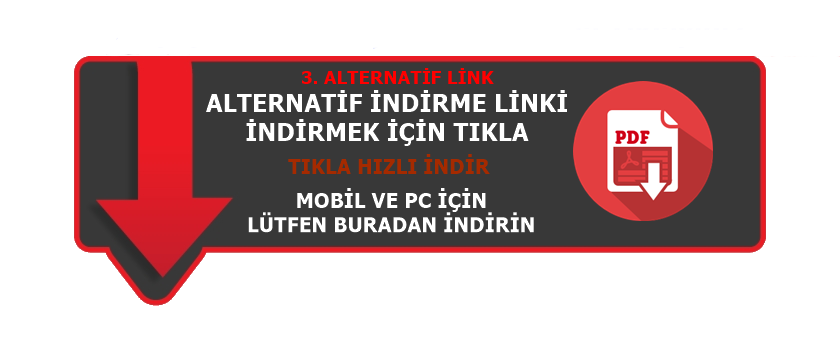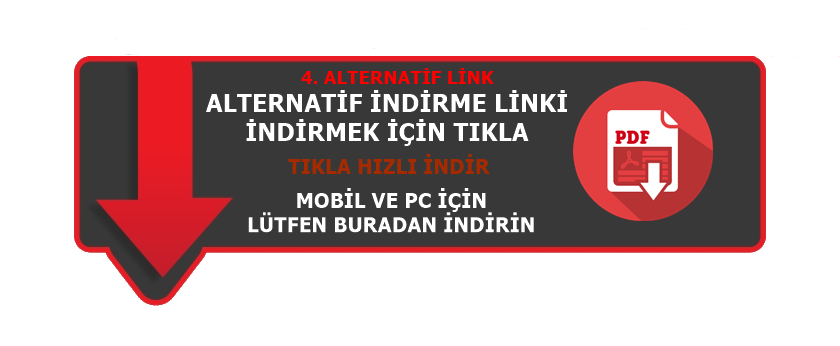Trends In eBusiness and eGovernment Pdf İndir – EFE AKADEMİ YAYINLARI Pdf İndir
Pdf Kitap İndir, Trends In eBusiness and eGovernment Pdf İndir – EFE AKADEMİ YAYINLARI Pdf İndir Pdf Kitap İndir
Trends In eBusiness and eGovernment Pdf İndir – EFE AKADEMİ YAYINLARI Pdf İndir Ücretsiz PDF İndir Google Drive İndirme Linki

Trends In eBusiness and eGovernment Pdf İndir – EFE AKADEMİ YAYINLARI Pdf İndir PDF Yandex Disk İndirme Linki

Trends In eBusiness and eGovernment Pdf İndir – EFE AKADEMİ YAYINLARI Pdf İndir PDF Alternatif İndirme Linki

İçindekiler
- 1 Trends In eBusiness and eGovernment Pdf İndir
- 2 Trends In eBusiness and eGovernment Kitabı Hakkında Bilgiler
- 3 Trends In eBusiness and eGovernment Kitabı Hakkında Daha Fazla Bilgiler
- 4 Trends In eBusiness and eGovernment Kitabı Özeti – Trends In eBusiness and eGovernment Kitabı Açıklaması
- 5 Trends In eBusiness and eGovernment Kitabı İndirme Linkleri – Trends In eBusiness and eGovernment İndir
Trends In eBusiness and eGovernment Pdf İndir
Trends In eBusiness and eGovernment Kitabı Hakkında Bilgiler
Trends In eBusiness and eGovernment Kitabı EFE AKADEMİ YAYINLARI çıkarmış olduğu Trends In eBusiness and eGovernment Kitabını PDF İndir – Trends In eBusiness and eGovernment 04.01.2021 Pdf İndir
Trends In eBusiness and eGovernment PDF indirmek istiyorsanız doğru yerdesiniz! Aşağıdaki bağlantıdan Trends In eBusiness and eGovernment kitabının ücretsiz pdf dosyasını indirebilirsiniz.
Siz değerli öğrenci kardeşlerimiz için Trends In eBusiness and eGovernment Kitabının PDF Dosyasını aşağıda indirme bağlantısına ekledik. EFE AKADEMİ YAYINLARI ait olan Trends In eBusiness and eGovernment kitabını aşağıdaki bağlantıdan rahatlıkla indirip kullanabilirsiniz.
Trends In eBusiness and eGovernment Kitabı Hakkında Daha Fazla Bilgiler
Trends In eBusiness and eGovernment Kitabı 04.01.2021 tarihinde tarafından yazılıp EFE AKADEMİ YAYINLARI tarafından basılmıştır. Trends In eBusiness and eGovernment kitabında toplamda 123 sayfa bulunmaktadır. Sizler için Trends In eBusiness and eGovernment kitabının PDF indirme bağlantısını aşağıya ekledik. Kolay bir şekilde indirip kullanabilirsiniz.
Trends In eBusiness and eGovernment Kitabı Özeti – Trends In eBusiness and eGovernment Kitabı Açıklaması
Technology affects all areas. Business and government processes are changing with the use of the internet, mobile devices, internet of things, blockchain, machine learning, artificial intelligence and many other new technologies. In this book, it is aimed to focus the use of technology, new trends in business life and government covering the studies in all sub-areas of Information Systems, Knowledge Management, eBusiness, eCommerce, eMarketing, mCommerce, eGovernment, ePublic Services, eGovernance etc. The book consists of 7 chapters. Book chapter authors are reputable scientists from different countries of the world. The first chapter is a critical review and a case study in e-Business, with special attention to the digital currencies resource and its possibilities. The second chapter attempts to incorporate the Unified Theory of Acceptance and Use of Technology (UTAUT) model with perceived risk theory (security risk and privacy risk) to explore its impact towards the intention to use m-government services. The third chapter aims to assess the level of gender inclusivity in the municipal e-procurement processes in the City of Johannesburg as a case study. The fourth chapter examines the impediments that derail the intensive uptake of eLearning programmes in a particular higher education institution. The fifth chapter investigated the role of Knowledge Management Systems (KMS) in enhancing the export performance of firms operating within the manufacturing sector in Zimbabwe. In the sixth chapter, a survey was undertaken on 131 small and medium-sized enterprises (SMEs) from Pelagonija region in order to determine the current level of SME digitalization within the region. It is aimed to compare with European Union (EU) average and to make conclusions on the impact of the SME digitalization to region gross domestic product (GDP) growth as well as revenues collection. The last chapter’s purpose was to develop a measuring and modelling framework/instrument of Internet banking service quality (IBSQ) for the South African banking sector.
Trends In eBusiness and eGovernment Pdf İndir – EFE AKADEMİ YAYINLARI Pdf İndir İçin Telif Hakkı ve benzeri durumlar için bizlerle mailden iletişime geçebilirsiniz.
(Görsele tıklayarak kolaylıkla bizlere mail atabilirsiniz.)
Kitap Adı: Trends In eBusiness and eGovernment
Yayınevi / Marka: EFE AKADEMİ YAYINLARI
Yazar:
Basım Tarihi: 04.01.2021
Sayfa Sayısı: 123
Trends In eBusiness and eGovernment Kitabı İndirme Linkleri – Trends In eBusiness and eGovernment İndir
Trends In eBusiness and eGovernment Kitabının indirme en güncel indirme linklerini sizler için aşağıda derledik. Trends In eBusiness and eGovernment Pdf İndirmek için aşağıdaki indirme linklerini kullanabilirsiniz. Lütfen indirme linkleri çalışmıyor ise bizlere yorumlar kısmından yazın. Kırık linkler her saat başı düzeltilmektedir.
Trends In eBusiness and eGovernment PDF Google Drive İndirme Linki
Trends In eBusiness and eGovernment PDF Yandex Disk İndirme Linki
Trends In eBusiness and eGovernment PDF Alternatif İndirme Linki
Technology affects all areas. Business and government processes are changing with the use of the internet, mobile devices, internet of things, blockchain, machine learning, artificial intelligence and many other new technologies. In this book, it is aimed to focus the use of technology, new trends in business life and government covering the studies in all sub-areas of Information Systems, Knowledge Management, eBusiness, eCommerce, eMarketing, mCommerce, eGovernment, ePublic Services, eGovernance etc. The book consists of 7 chapters. Book chapter authors are reputable scientists from different countries of the world. The first chapter is a critical review and a case study in e-Business, with special attention to the digital currencies resource and its possibilities. The second chapter attempts to incorporate the Unified Theory of Acceptance and Use of Technology (UTAUT) model with perceived risk theory (security risk and privacy risk) to explore its impact towards the intention to use m-government services. The third chapter aims to assess the level of gender inclusivity in the municipal e-procurement processes in the City of Johannesburg as a case study. The fourth chapter examines the impediments that derail the intensive uptake of eLearning programmes in a particular higher education institution. The fifth chapter investigated the role of Knowledge Management Systems (KMS) in enhancing the export performance of firms operating within the manufacturing sector in Zimbabwe. In the sixth chapter, a survey was undertaken on 131 small and medium-sized enterprises (SMEs) from Pelagonija region in order to determine the current level of SME digitalization within the region. It is aimed to compare with European Union (EU) average and to make conclusions on the impact of the SME digitalization to region gross domestic product (GDP) growth as well as revenues collection. The last chapter’s purpose was to develop a measuring and modelling framework/instrument of Internet banking service quality (IBSQ) for the South African banking sector.
 EĞER YUKARIDAKİ LİNK ÇALIŞMIYORSA LÜTFEN AŞAĞIDAKİ ALTERNATİF LİNKTEN İNDİRİN
EĞER YUKARIDAKİ LİNK ÇALIŞMIYORSA LÜTFEN AŞAĞIDAKİ ALTERNATİF LİNKTEN İNDİRİN
 EĞER YUKARIDAKİ ALTERNATİF 2 LİNK ÇALIŞMIYORSA LÜTFEN AŞAĞIDAKİ ALTERNATİF LİNKT 3 DEN İNDİRİN
EĞER YUKARIDAKİ ALTERNATİF 2 LİNK ÇALIŞMIYORSA LÜTFEN AŞAĞIDAKİ ALTERNATİF LİNKT 3 DEN İNDİRİN
 EĞER YUKARIDAKİ ALTERNATİF 3 LİNK ÇALIŞMIYORSA LÜTFEN AŞAĞIDAKİ ALTERNATİF LİNKT 4 DEN İNDİRİN
EĞER YUKARIDAKİ ALTERNATİF 3 LİNK ÇALIŞMIYORSA LÜTFEN AŞAĞIDAKİ ALTERNATİF LİNKT 4 DEN İNDİRİN
 İndirme linkleri sürekli olarak güncellenmektedir. Eğer bulunduğunuz saatte linkler çalışmıyor ise 1 saat sonra tekrardan deneyiniz eğer sorun devam ederse yorum olarak bize bildiriniz. Ortalama 10 dakika içerisinde güncellenerek tarafınıza bilgilendirme yapılır.
İndirme linkleri sürekli olarak güncellenmektedir. Eğer bulunduğunuz saatte linkler çalışmıyor ise 1 saat sonra tekrardan deneyiniz eğer sorun devam ederse yorum olarak bize bildiriniz. Ortalama 10 dakika içerisinde güncellenerek tarafınıza bilgilendirme yapılır.